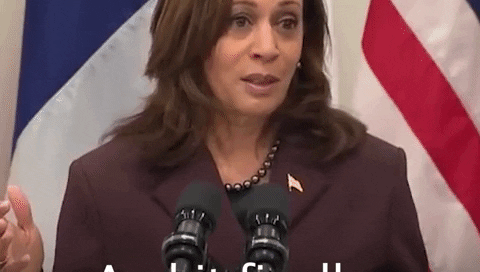Fintech Update, 4/17 - 4/23
Hi! It’s Monday, April 24th, 2023.
The Rundown
Unless you’ve been living in a cave, you may have heard that Apple launched a savings account. It was the noisiest announcement in fintech last week and the hype cycle / content-generation machine is already in full swing (see coverage here, here, here, here, here…). We get it, for two reasons – (1) anything Apple does is almost inherently interesting at this point, and the advent of a savings account signals the tech giant’s growing ambitions in financial services, and (2) it demonstrates the massive distribution advantage that Apple and other tech companies have by embedding new financial features into their existing products. The first point is less important: Apple may be a tastemaker and a bellwether for the ambitions of big tech, but we’ve been writing about big tech’s push into financial services for years. Moreover, Apple already has so many financial services products (Apple Wallet, Apple Card, Apple Pay Later, and others) that getting deeper into banking feels like a foregone conclusion, or at least not unexpected (the team at Unit even published a full article last summer about what it might look like if Apple built banking. Disclosure: two of us work at Unit.) The second point is much more interesting: consumer neobanking is a challenging business right now – a saturated market and fewer VC dollars mean the cost of acquiring customers is both higher and more important than ever. More fintech firms are competing for an increasingly small piece of pie, and the VC dollars they used to use to do it have now dried up. But what if you didn’t have to try so hard to make users switch? What if you could offer a new service within the existing ecosystem you already use every day – and get paid market-leading interest rates to boot? By embedding savings directly into its wallet, Apple cuts down on the pain of switching, slashes the cost to acquire depositors, and immediately puts competing products on the back foot. We’ll see if it’s sustainable, but Apple’s expansion into banking certainly felt inevitable – and we’re betting it will be successful as well.
Of course, Apple’s banking ambitions would be nothing without an actual bank supporting them – and Apple’s savings account doubles down on the company’s partnership with Goldman Sachs. It’s an interesting move by the bank, which has been noticeably unwinding its consumer operations in recent months (including shelving plans for a Goldman-branded credit card and exploring the sale of consumer installment lender Greensky). CEO slash DJ David Solomon released a statement that the partnership with Apple “is a way . . . to try to open up another deposit channel” and “broaden [the] deposit base,” which doesn’t seem to align with those recent moves or with the bank’s investment in its flagship retail product, Marcus. Solomon addressed that topic as well, saying that he isn’t concerned about Apple’s savings account “cannibalizing” Marcus, but we’re skeptical. Our take? Cannibalizing Marcus might actually be the point! In the Apple savings product, Goldman may see the same deposit upside and exposure to retail customers that they were hoping for with Marcus, but without the headaches of marketing the product or interacting directly with the customers. In fact, the deepening of the Goldman-Apple relationship may just be the latest sign that the bank is sunsetting its branded retail efforts in favor of a white-labeled model that leverages the power of the Apple go-to-market machine and distribution strategy.
In a four-hour hearing before the House Financial Services Committee, Securities and Exchange Commission (SEC) Chairman Gary Gensler defended the agency’s regulation of cryptocurrency firms from attacks by House Republicans. Committee Chair Patrick McHenry (R-NC) claimed “regulation by enforcement is not sufficient nor sustainable” and the agency’s approach “is driving innovation overseas.” Gensler asserted that the US has a “clear regulatory framework built up over 90 years” and that crypto companies are “noncompliant generally, and they need to come into compliance.”
Robo-adviser Betterment agreed to a $9 million settlement with the SEC (big week for the SEC!) to resolve charges that the firm made “misstatements, as well as disclosure and record-keeping failures” between 2016-19 related to its “automated tax loss harvesting service.” Betterment touted the service as a way to automatically scan a customer’s portfolio and sell securities at a loss in order to offset the tax impact of realized gains from other securities sales. The SEC said Betterment’s failures “impacted more than 25,000 accounts, resulting in those clients losing approximately $4 million in potential tax benefits.” As usual, Bloomberg’s Matt Levine has a terrific explanation and analysis of the situation.
Crypto exchange Coinbase received a license to operate in Bermuda, as the company proceeds with its “8-week international expansion drive in 6 continents.” CEO Brian Armstrong has been vocal about considering other homes for the company in the wake of receiving a Wells Notice from the SEC last month.
Finally, Taylor Swift apparently is “one of only a few celebrities” who avoided a disastrous FTX endorsement deal by asking the simple question, “Can you tell me that these are not unregistered securities?” This is according to attorney Adam Moskowitz, who is currently leading a $5 billion class-action lawsuit against the defunct company’s “high-profile promoters” – a group that includes Larry David (pretty…pretty…not good) and a shockingly difficult-to-find Shaquille O’Neal. But T-Swift? No, Tay-Tay avoided FTX’s whole mess because, well, she knew they were trouble when they walked in.
The Reading Nook
The FT continued its coverage of N26, looking at how Germany’s top fintech is “struggling to grow up” after a failed acquisition of Dutch online broker Bux and failure to launch basic products like interest-bearing savings accounts and stock trading. Separately, insurance company Allianz put up its 5% stake in the digital bank up for sale at a deep discount.
The Economist looked at whether the worst is over for America’s banks, and predicted a wave of mergers.
Selected fundings
Home-swapping startup Kindred secured $15M in Series A financing led by New Enterprise Associates.
Accounting automation platform Trullion raised an additional $15M in a Series A extension round led by Stepstone Group.
What do gin, a budget wireless provider, a Welsh footy team, and a Canadian payments provider all have in common? Ryan Reynolds! The Hollywood star acquired a stake in Canadian payments firm Nuvei.






